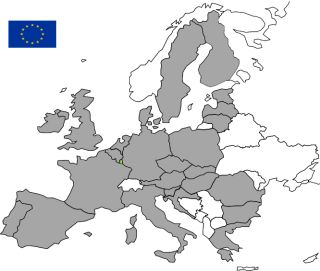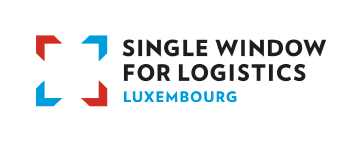
The European Union (EU) is composed of 27 Member States: Germany, Austria, Belgium, Bulgaria, Cyprus, Croatia, Denmark, Spain, Estonia, Finland, France, Greece, Hungary, Ireland, Italy, Latvia, Lithuania, Luxembourg, Malta, the Netherlands, Poland, Portugal, Romania, Slovenia, Slovakia, Sweden, the Czech Republic.
Since 1 January 2021, the United Kingdom is a third territory. Northern Ireland benefits from a temporary derogation: trade in deliveries of goods between Northern Ireland and the EU is subject to customs, excise and VAT rules until 31 December 2024
Some national territories of these Member States are not part of the European Union.
For example: French Polynesia is an overseas collectivity that is not part of the European Union.
A detailed table of the territories concerned is available on the website of the European Commission.
The entire territory of Luxembourg is part of the EU.
The EU is a single European market that allows the free circulation of goods. This founding principle is based on the existence of a Customs Union between the Member States and on the definition of a fiscal territory of the EU. The circulation of excise goods in the excise territory is however regulated.
The principle of the free circulation of goods is moreover subject to other restrictions imposed by law, concerning in particular:
- money, stocks and securities
- automobiles and motorcycles
- pets
- guns, ammunition and narcotics
- protected species of animals and plants.
As a Member State of the EU, Luxembourg benefits from the Customs Union and is part of the fiscal and excise territories of the EU. Exchanges of goods involving the Luxembourg territory benefit from specific rules that apply there.
The Customs Union
Within the Customs Union, the 27 Member States of the EU form a single customs territory.
This implies:
- that no customs duty is applied on Union goods circulating between the Member States
- that common customs duties are applied on importation of non-Union goods in the EU
- that the Member States apply a common customs regulation, prepared by the European institutions.
The other common rules prepared by the European institutions that must be taken into account with respect to customs also concern the following:
- preferential origin agreements
- health, phytosanitary, environmental and food safety controls
- common policies regarding agriculture and fishing
- as well as the protection of the economic interests of the EU by means of commercial policy measures.
Note: Other customs unions exist between the EU and other countries that are not part of the EU.
For example: a Customs Union exists between EU and Turkey concerning industrial products (except for steel products).
A detailed table of the territories that are part of the European Customs Union is available on the website of the European Commission.
The EU fiscal territory
The territories of the Member States form, with some exceptions, the fiscal territory of the EU. Exchanges of Union goods occurring on this fiscal territory are intra-community exchanges.
Union goods circulate freely within the fiscal territory:
- they are not subject to the formalities of customs declarations or to customs controls
- they are subject to the harmonized rules of intra-community VAT and Intrastat declarations.
Non-Union goods that are placed in a suspensive customs procedure may generally benefit from a suspensive VAT arrangement.
Note: The fiscal territory excludes certain territories or is extended to other countries that are not part of the EU.
For example: the French overseas departments are part of the EU and the Customs Union but not part of the fiscal nor excise territory of the EU. A delivery of bananas from Martinique to Luxembourg must be declared to customs as an import. No customs duty will however be due since Martinique is part of the Customs Union.
For example: Monaco is not a member of the EU but is part of the Customs Union and the EU fiscal territory. Sales of apple juice shipped to a customer in Monaco must follow the intra-community VAT rules.
A detailed table of the territories concerned is available on the website of the European Commission.
The entire territory of Luxembourg is part of the EU fiscal territory.
The EU excise territory
The territories of the Member States form, with some exceptions, the EU excise territory. The importation, production, circulation and consumption of excise goods occurring on this excise territory must adhere to the specified rules governing excises.
Note: The excise territory excludes certain territories or is extended to other countries that are not part of the EU.
For example: the Spanish Canary Islands are part of the EU and the customs Union but not part of the fiscal nor excise territory of the EU. Sales of wine shipped to a customer in the Canary Islands must follow the rules applicable to the exportation of excise goods.
For example: Saint Marin is not a member of the EU and is not part of the fiscal territory, but is part of the EU excise territory for deliveries to Saint Marin only. Sales of cider shipped to a customer in Saint Marin must follow the rules applicable to intra-community circulation of excise goods.
A detailed table of the territories concerned is available on the website of the European Commission.
The entire territory of Luxembourg is part of the European Union excise territory.


